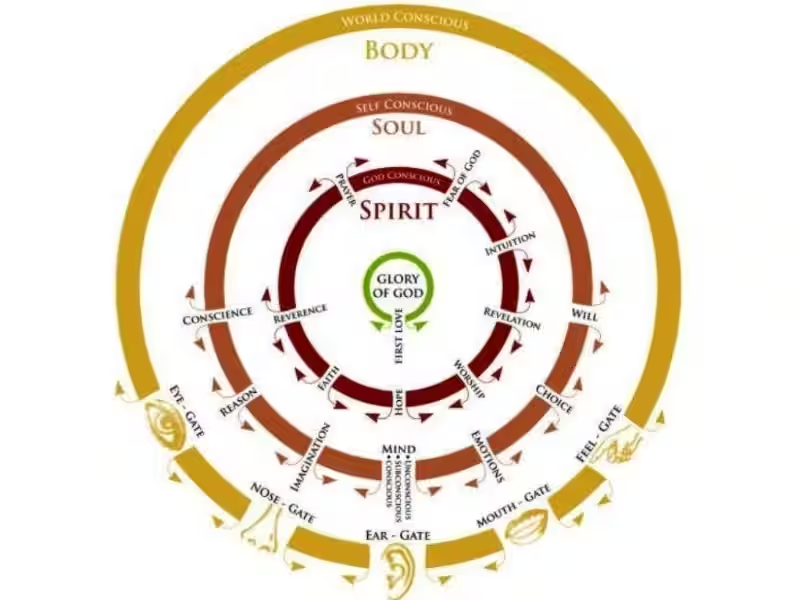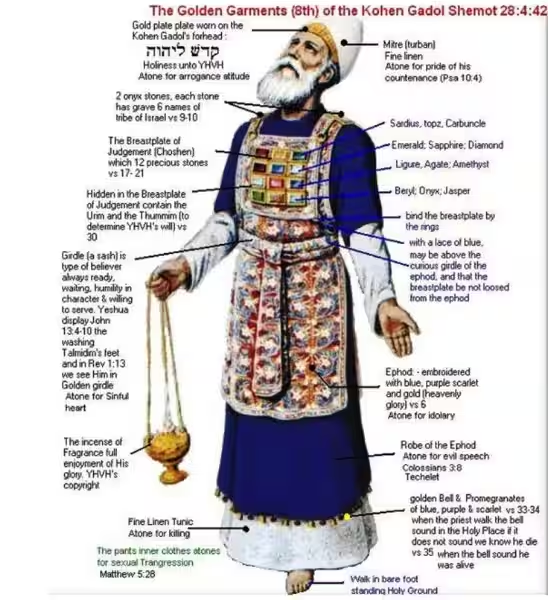What Are the 12 Spiritual Gates?

Many wonder about the symbolic meaning behind the twelve gates of the New Jerusalem, described in Revelation 21. This article explores the rich theological significance of these gates, examining their multifaceted symbolism and the spiritual lessons they offer. We will delve into what these twelve gates represent and how they apply to our spiritual understanding.
The Twelve Gates of the New Jerusalem: A Symbol of God’s Covenant and Inclusivity
Revelation 21:12-14 describes the New Jerusalem as having twelve gates, each made of a single pearl and bearing the name of one of the twelve tribes of Israel. This imagery carries profound theological weight, connecting the New Testament's vision of salvation with the Old Testament's covenant with Israel.
The twelve tribes, traditionally seen as the foundational groups of God's chosen people, represent God's faithfulness to His promises. The gates, therefore, symbolize the enduring importance of this covenant, echoing the promises made to Abraham and the establishment of the twelve tribes. The placement of three gates on each side of the city further emphasizes this connection, mirroring Ezekiel's vision of the millennial kingdom and the Israelite encampment around the tabernacle. This deliberate mirroring highlights the continuity between the Old and New Testaments.
However, the significance of the twelve gates extends beyond the physical descendants of Israel. The New Testament emphasizes that the covenant is not limited by bloodline alone. Paul's writings in Romans and Galatians clarify that true descendants of Abraham are those who share his faith, regardless of their ethnicity. The inclusion of Gentiles within the New Jerusalem underscores this spiritual inclusivity. These twelve gates, therefore, represent both Jewish believers and the Gentiles who have been grafted into God's family, signifying the universal reach of salvation offered through Christ.
The Gates as Pearls of Immense Value
The description of the gates as twelve pearls of immense value emphasizes the priceless nature of the New Jerusalem and its heavenly glory. This echoes Jesus' parable of the pearl of great price, highlighting the immeasurable worth of salvation and the heavenly kingdom. The sheer value of these pearls reinforces the immense worth that God places on those who enter through these symbolic gates. This reminds us of the preciousness of our relationship with God and the sacrifice He made to secure our salvation.
Ever-Open Gates: Unrestricted Access to God's Grace
The text further states that the gates are always open, emphasizing continuous and unrestricted access to God's grace. This continuous access depicts the unwavering nature of God's love and His eternal welcome to all who have accepted Christ. The orientation of these gates towards all four cardinal directions symbolizes a universal invitation, signifying that the New Jerusalem is a place of welcome for everyone who has embraced God's grace and committed to following Christ.
Interpreting the 12 Gates: Beyond Literal Entry Points
While the twelve gates of the New Jerusalem are described with vivid imagery, it's important to understand their significance primarily as symbolic representations. The twelve gates are not literal entry points to Heaven, but rather powerful symbols of the broader themes presented in Revelation.
Several interpretations are possible. The gates might represent:
-
The twelve tribes of Israel: Symbolizing the enduring covenant between God and His chosen people, and the inclusion of both Jews and Gentiles in this covenant.
-
The twelve apostles: Representing the foundational teachings of Christ, which are accessible to all.
-
Twelve core virtues: Each gate could symbolize a different essential spiritual attribute necessary for entrance into God’s kingdom, such as faith, love, hope, etc.
Regardless of the specific interpretation, the crucial takeaway is the overarching theme of inclusivity and the universal availability of salvation. The gates' ever-open state emphasizes God's welcoming nature and the readily available grace for all who believe.
The Spiritual Significance of the Twelve Gates: A Modern Application
While the twelve gates are ultimately a description of the heavenly city, their symbolism can be applied to our spiritual journeys. We can see them as representing different aspects of our lives where we can encounter the blessings of God. Each gate could be seen as a doorway to a specific spiritual blessing or area of growth. For instance, one gate might symbolize overcoming fear, another finding forgiveness, and another experiencing spiritual healing.
By focusing on the spiritual principles represented by these gates — faith, hope, love, forgiveness, repentance, etc. — we can open ourselves to God's grace and experience the fullness of His blessings in our lives. The important aspect is not to assign specific meanings to each gate, but rather to reflect on the overarching message of inclusion, abundant grace, and God's welcoming embrace. The twelve gates of the New Jerusalem serve as a potent reminder of the universality of God's love and the eternal hope offered to all who believe. What are the 12 spiritual gates to you? The answer lies in reflecting on the broader spiritual significance of Revelation 21 rather than seeking a rigid, literal interpretation.
Frequently Asked Questions: The Twelve Gates of the New Jerusalem
What are the twelve gates of the New Jerusalem, and what do they symbolize?
The twelve gates of the New Jerusalem, described in Revelation 21:12-14, are depicted as twelve pearls, each inscribed with the name of one of the twelve tribes of Israel. They symbolize the enduring covenant God made with Abraham and his descendants, represented by the twelve tribes. This highlights God's faithfulness to His promises. However, the symbolism extends beyond literal physical descent. The gates also represent the spiritual descendants of Abraham—all those who share his faith in God, regardless of their ethnicity. This signifies the inclusivity of salvation offered through Christ, encompassing both Jewish believers and Gentiles. The gates' presence signifies the universal scope of salvation and the enduring importance of God's chosen people. The ever-open gates symbolize continuous and unrestricted access to God's grace and eternal peace within the New Jerusalem.
Do the twelve gates represent different paths to salvation, or are they symbolic of something else?
The twelve gates are primarily symbolic representations rather than literal entry points signifying different paths to salvation. While associated with the twelve tribes of Israel, they ultimately symbolize the universal access to salvation offered through Christ. The gates represent the inclusivity of God's grace, available to all who believe, regardless of ethnic or national origin. The emphasis is on unity in Christ, not separate entrances based on background.
Are the gates only for Jewish people, or are Gentiles included in this symbolism?
The gates include both Jewish believers and Gentiles. The symbolism transcends ethnic boundaries. While the names of the twelve tribes are inscribed on the gates, connecting them to the Old Covenant, the broader context of Revelation and other scriptures (like Romans 9-11 and Galatians 3) emphasizes that salvation is offered to all who believe in Christ, regardless of their heritage. The inclusion of Gentiles in the New Jerusalem signifies the universality of God's grace.
What is the significance of the gates being made of pearls?
The description of the gates as twelve pearls emphasizes their immense value and the priceless nature of the New Jerusalem and its heavenly glory. This imagery evokes concepts of the immeasurable worth of salvation and the heavenly kingdom, similar to Jesus' parable of the pearl of great price (Matthew 13:45-46).
What is the significance of the angels guarding the gates?
The presence of angels guarding the gates reinforces the purity and security of the New Jerusalem. It underscores that only those whose names are written in the Lamb's book of life (Revelation 21:27) have access, emphasizing the exclusivity of entry into God's eternal kingdom based on faith in Christ and a life lived according to His will.
How does the positioning of the gates (three on each side) relate to other biblical passages?
The placement of three gates on each side of the city mirrors Ezekiel's vision of the millennial kingdom (Ezekiel 48:30-34) and the encampment of the Israelites around the tabernacle (Numbers 2). This mirroring emphasizes the connection between the Old and New Testaments, showing the continuity of God's plan for His people throughout history.
What does it mean that the gates are always open?
The ever-open gates symbolize the continuous and unrestricted access to God's grace. It conveys the idea of an ongoing invitation to experience the eternal peace, safety, and blessings within the New Jerusalem. This corresponds to the universal invitation to partake in God's blessings found in Revelation 22:17.
Is there a specific spiritual practice associated with the twelve gates?
While Revelation 21 doesn't describe a specific spiritual practice, some contemporary interpretations link the twelve gates to specific areas of life, using prayer and declaration to access blessings. These practices are not explicitly found in scripture but are based on allegorical interpretations of the symbolic meaning of the gates. It's important to discern between biblical teachings and later developed practices.
Do different gates lead to different blessings or spiritual experiences?
The idea of different gates leading to distinct blessings is a modern interpretation, not directly supported by the biblical text. While some practices associate each gate with a particular area of life, Revelation 21 focuses on the overall concept of universal access to God's grace and the unity of believers within the New Jerusalem, not specific individual gates leading to different spiritual outcomes.







